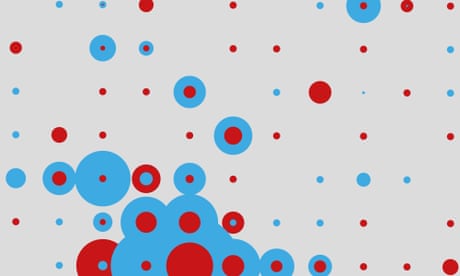Via Robin Fransman en Simon Rozendaal:
Voor de zekerheid de link: https://twitter.com/RF_HFC/status/12...691585/photo/1
Dus alle mannen binnen laten blijven, want daarbij is de kans veel groter dat het virus overgedragen wordt.
Via Robin Fransman en Simon Rozendaal:
Voor de zekerheid de link: https://twitter.com/RF_HFC/status/12...691585/photo/1
Ik heb meerdere artikelen gelezen dat zelfs een sjaal de infectie kans al met 50% verlaagt (besmette persoon). Als beide partijen een redelijk goed mondkapje dragen stijgt dat percentage enorm.
Als je dat combineert met het extra wassen van handen, de risicogroepen en mensen met milde verkoudheidsklachten buiten de deur houd lijken mij de kappers ook geen enorme bron van besmettingen.
Vraag aan jou. Heb je al eens uitgezocht wat een faillissement of langdurige werkloosheid met de levensverwachting doet?
Jij kent Simon Rozendaal niet?


Ja wat is je punt? Nogmaals, het gaat er mij om dat er dus blijkbaar onderzoeken zijn waaruit blijkt dat het effect van mondkapjes niet bewezen is. Moet ik nu linkjes van die twitterberichten plaatsen?
.
En even voor de volledigheid, ik heb de wijsheid niet in pacht en ga ook niet doen alsof, blijkbaar zijn er allemaal wetenschappers en knappe koppen die er nog meer verstand van hebben dan wij en die niet op één lijn zitten
Daar is ook geen speld tussen te krijgen. Het ging er mij om dat je op tv pleit voor iets wat totaal niet haalbaar is. Er zijn niet genoeg mondkapjes voor de zorg. Laat staan voor kapsalons, nagelstudio's etc.
Ook is het zo dat ik een patroon herken. Je ziet dat landen en instanties met meer pandemie ervaring eerder, meer en actiever mondkapjes promoten en/of gebruiken.
Kun je dat ook onderbouwen, in China en Singapore is er bijvoorbeeld geen verplichting om de straat op te gaan met een mondkapje.
https://edition.cnn.com/2020/04/01/asia/coronavirus-mask-messaging-intl-hnk/index.html
https://time.com/5799964/coronavirus-face-mask-asia-us/
https://www.bbc.com/news/world-52015486
https://www.theatlantic.com/politics/archive/2020/04/america-asia-face-mask-coronavirus/609283/
https://www.voanews.com/science-hea...ronavirus-asians-have-worn-face-masks-decades
Still, face masks likely “played an active role in slowing down the disease transmission progress in Asian countries” relative to Western countries, Elaine Shuo Feng, a University of Oxford epidemiologist who has studied countries’ varying face-mask policies during the COVID-19 outbreak, told me. But their usage should be part of a package of containment measures, including social distancing, school closures, and possibly lockdowns to slow the spread of the coronavirus through communities.
In places such as Hong Kong, South Korea, and Taiwan, which have had relative success so far in containing COVID-19, the public and its leaders understood this reality from the start of the outbreak. As my colleague Ed Yong has cautioned, the fact that several countries that have made the most progress in containing the coronavirus also have robust mask traditions doesn’t necessarily imply causation. “China advocated mask use early on and still struggled to contain the disease,” he points out, while “Singapore reserved them for health-care workers but still flattened the curve of infections.” What can be said more definitively is that mask-wearing tends to be widespread in countries that view disease outbreaks with the gravity that comes from firsthand experience with the horror of an epidemic.
Hoor net dat een oud-collega van mij vrijdagavond is beboet. Ze hield met haar man een BBQ in de tuin en had twee bevriende stellen uitgenodigd. De sterke arm arriveerde en schreef zes boetes van 400 euro pp uit. Scheen dat die waren getipt door de buren.... Denk dat ze de komende vakantie daar niet voor de plantjes zal zorgen!
Een hoogleraar bestuursrecht o.i.d. in Groningen is van mening dat dergelijke boetes met de huidige procedures ongrondrechtelijk zijn en aanvechtbaar.
Ja en dan ben ik ook erg benieuwd of er een patroon is dat die landen het beter doen met mondkapjes.
Die wens ik dan veel succes.Dan zal haar man er vast nog wel werk van maken.
Hoor net dat een oud-collega van mij vrijdagavond is beboet. Ze hield met haar man een BBQ in de tuin en had twee bevriende stellen uitgenodigd. De sterke arm arriveerde en schreef zes boetes van 400 euro pp uit. Scheen dat die waren getipt door de buren.... Denk dat ze de komende vakantie daar niet voor de plantjes zal zorgen!
In Duitsland iig ( nog? ) niet. Daar is men het ook niet met elkaar eens. Er wordt dan ook volop gediscussieerd of die huisgemaakte mondkapjes wel voldoen en het goed signaal zijn.
Behalve die van Tankwart natuurlijk. Die zijn wel heel erg goed!:duim:
